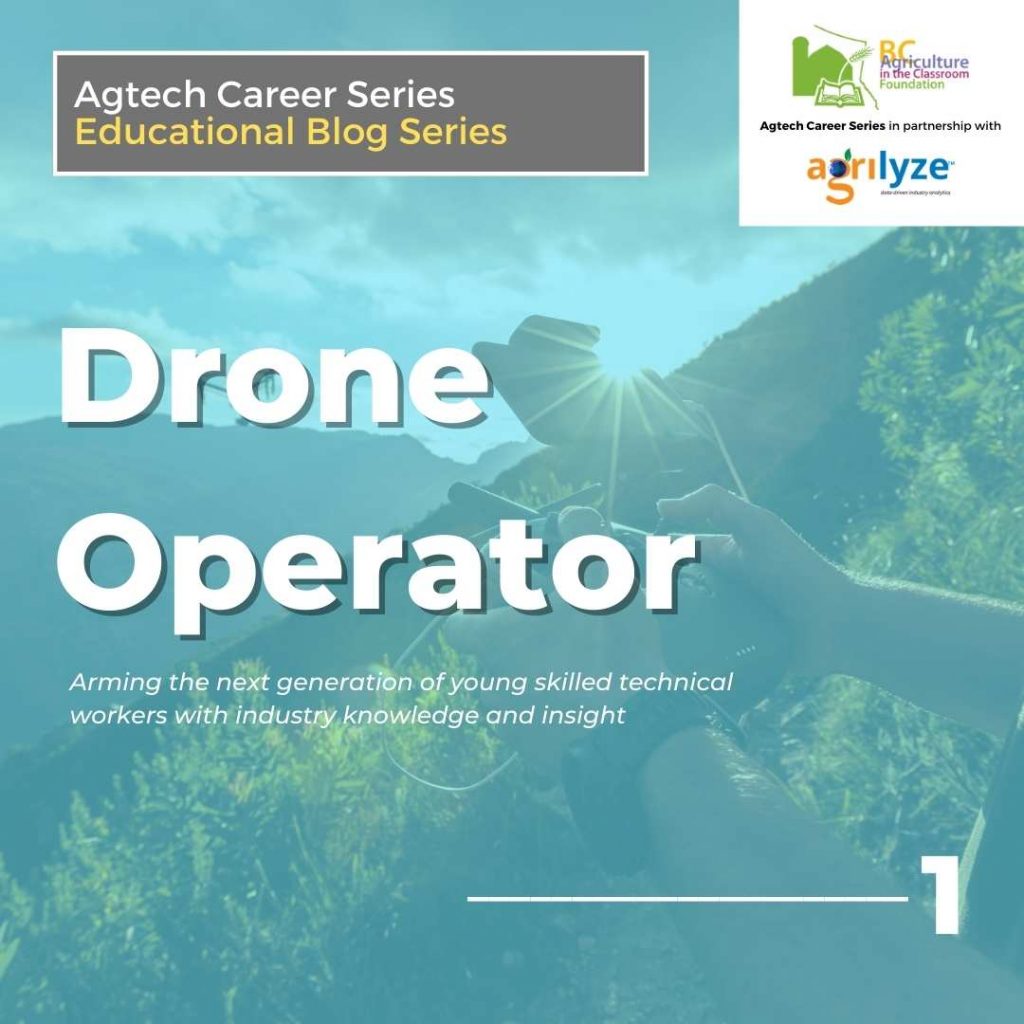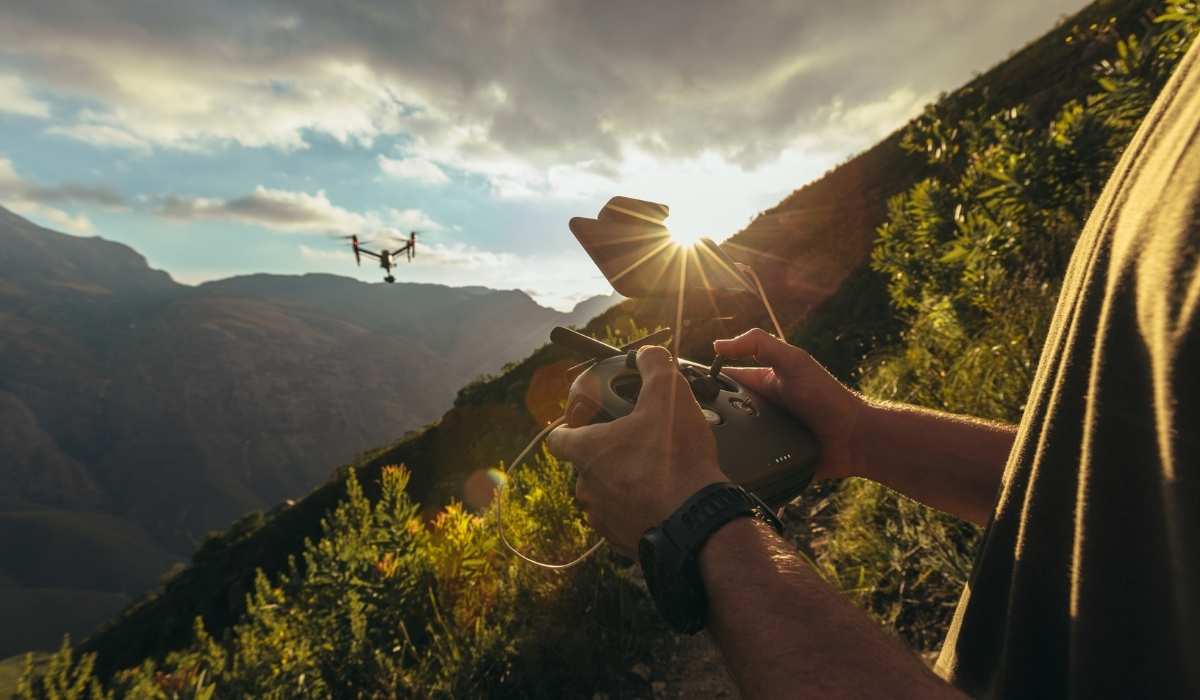Agtech Career Series: Career 1 – Drone Operator
Did you know drones can cover hectares of farmland faster than any tractor or pickup truck can?
Agricultural drones collect information as they fly that can be useful for farm management. They can also be used as a valuable tool in security and safety to catch intruders, wild animals, or livestock that have wandered off.
A drone can fly across several hundred hectares of land using one battery, and this all takes just a few minutes!
As such, drones can be scheduled or used when needed. It is the operator’s role to monitor the real-time video. A drone can even be built with thermal cameras, which allows surveillance to occur at night when things are extra quiet on the farm. A great time to make discoveries!
If the farm you are working with is on the larger side, drone swarms can be used. This will eliminate the need for manual flight and helps extend the scope of the drone surveillance system.
One of the primary uses of drones in agriculture is for precision agriculture. Here, drones are used to gather and observe data, which can then evaluate crop health. Because each data point has a spatial dimension or corresponding spot on the farm, operators can use drones in targeted remediation. This means things like fertilizer, irrigation, or pest control can be allocated precisely where and when needed. Precision agriculture is a data-driven approach to farming and ultimately can assist the farm to operate more efficiently.
Drones can have multispectral sensors, which are a lot like cameras, but they detect energy outside the visible light spectrum. These sensors can be used to detect and record energy at different frequencies. And the data collected here can be further manipulated, combined and studied to help farmers better understand their crops’ health.
Here are some other important applications of agricultural drones:
- Land mapping
- Livestock management
- Crop spraying
- Soil and field analysis
- Seed planting
- Irrigation monitoring and management
Drone operators are also known as drone pilots. They are responsible for operating drones or unmanned aerial systems (UAS).
Some of their typical duties and responsibilities include:
- Checking drones before they take flight to ensure proper and safe operation
- Making sure the weather is agreeable for safe flights
- Documenting pre-and post-flight logs
- Monitoring the drone during flight
- Planning drone flight routes
- Navigating the drones along their designated paths
- Gathering information
- Producing aerial photographs
- Testing, troubleshooting and maintaining equipment
To work as a drone operator, you will need to take an online exam. If you pass the test, you will automatically receive your Pilot Certificate. To stay certified, you need to keep your skills up to date.
You will either retake the exam every two years, successfully pass a flight review, or complete additional training activities.
Here is a list of skills and competencies you will need to become a drone operator:
- Precise attention to detail
- Ability to multitask
- Excellent electronic and mechanical skills
- Good problem-solving abilities
- Strong communication skills
To be a great drone operator, you must be focused on maximizing yields, minimizing costs, and future-proofing farms. The field of agricultural drone work is still young, so with the right training and passion for the area, you can be a large part of a farm’s transformation toward becoming more sustainable and profitable.
Here are some of the tasks you may undertake as a drone operator in the agriculture industry:
- Working as a consultant to offer land evaluation and action-based farm improvement maps based on thermal and advanced imaging
- Creating automated systems to help handle planting, spraying, and routine crop management
- Working as a contractor to regularly monitor crops, spraying and producing analyses for maximizing farm yields
- Working with larger agricultural operators who need a dedicated drone pilot
- Developing studies on plant/crop survival/viability based on different climatic conditions
How Agrilyze Can Help
- Display drone data in the context of other relevant data such as weather, farm boundaries, and soil samples
- Provide a platform to upload drone imagery for further processing
- Leverage algorithms to process and display derived data such as plant health or soil moisture
- Help farmers capture ground truthing data to validate what the drone/analysis has shown
- Allow the integration of drone data with satellite imagery to provide further insights
- Allow for drone data to combined with IoT (devices) to help with analysis
View Agtech Career 1 – Drone Operator Info Sheet



